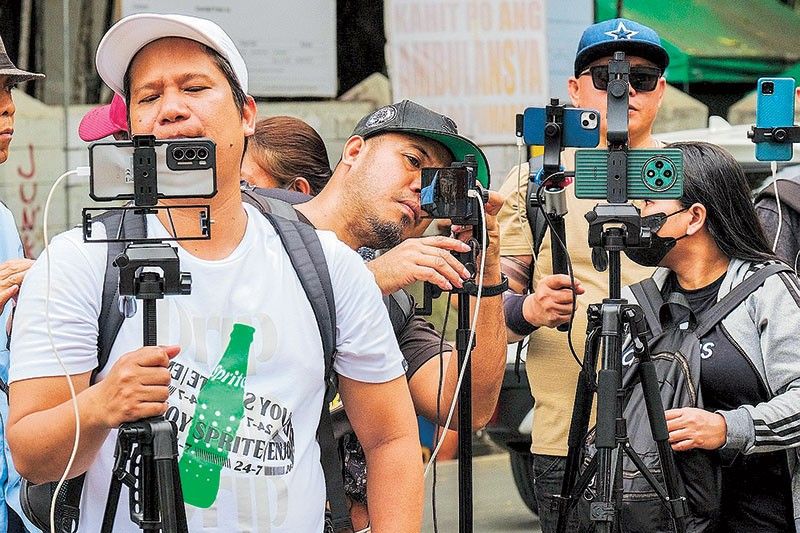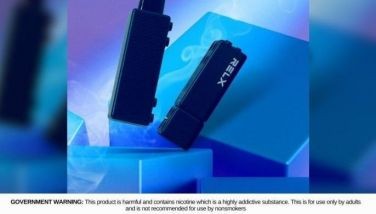Influencers, vloggers snub House probe, seek SC intervention

MANILA, Philippines — Only three of the 41 online personalities invited by the tri-committee of the House of Representatives attended yesterday’s hearing about the proliferation of fake news, earning the ire of lawmakers who were forced to issue show-cause orders.
All of the absentees, according to presiding chairman Rep. Dan Fernandez, submitted “excuse letters,” while one – Trixie Cruz-Angeles who served as President Marcos’ first press secretary – questioned the legality of the chamber’s deliberations.
“I respectfully decline this invitation as I question the legality of the inquiry as well as the proposed legislation for being violative of the constitutional guarantee of free speech,” Fernandez quoted Angeles as saying in her letter.
“She is an officer of the court, and she should respect the constitutional duty of Congress. I move that we will consult the legal department of this House for a possible disbarment case against Atty. Angeles,” Rep. Joseph Stephen Paduano said.
Paduano’s first move was to issue a show-cause order for Angeles to personally appear at their next hearing, along with so-called “influencers” Elizabeth Cruz (Joie De Vivre online), Krizette Lauretta Chu, Mark Anthony Lopez, Jun Abines Jr., Richard Tesoro Mata, Aaron Peña, Suzanne Batalla (IamShanwein) and Ethel Pineda.
A show-cause order compels an individual to appear and justify why they should not face penalties.
Several of the personalities, including Angeles and former National Task Force to End Local Communist Armed Conflict spokesperson Lorraine Badoy, filed a petition for certiorari and prohibition with urgent prayer for the issuance of a temporary restraining order and writ of preliminary injunction before the Supreme Court (SC) yesterday as they skipped the tri-committee hearing.
Named respondents were Speaker Martin Romualdez, Surigao Rep. Ace Barbers and tri-committee members Rep. Tobias Tiangco, Rep. Jose Aquino II and Fernandez.
The petitioners claimed the inquiry violates their constitutional rights to free speech, expression and press freedom, adding that the tri-committee acted with grave abuse of discretion when it made “threats to the free exercise of speech, freedom of the expression and of the press.”
They were pertaining to separate privilege speeches of Barbers, where he claimed “trolls” and “malicious vloggers” were attacking him and public officials online.
The congressman from Surigao del Norte also claimed the “paid trolls and vloggers” were allegedly paid out from sources of illegal drugs and POGO operations, as well as alluding to the group’s purported spreading of fake news and propaganda in favor of China.
The petitioners also cited the House resolution, which authorized the tri-committee to conduct its disinformation hearing, referring to the posting of “false and malicious content” in social media platforms and the need to recommend measures “to combat harmful content.”
They argued that the congressional probe is unconstitutional, as it imposes prior restraint on free speech and creates a “chilling effect” on vloggers and content creators.
The petitioners noted that this is evident in how the House had cited in contempt – and ordered detained – some resource speakers.
“This ‘chilling effect’ constitutes prior restraint on free expression. As such, the acts of respondents should be struck down as unconstitutional,” the petition read.
However, Barbers clarified that their purpose for the deliberations was not to curtail free speech, as enshrined in the 1987 Constitution, but to establish accountability in today’s digital space.
“We are gathered here not to silence voices, suppress free speech or curtail the constitutional right to freedom of expression. Our goal is to develop a code of conduct for content creators, ensuring accountability and ethical responsibility in this rapidly evolving digital space,” he said.
“Instead, we are here to draw the line between responsible discourse and the deliberate, systematic abuse of digital platforms to spread lies, destroy reputations and manipulate public perception,” Barbers stressed.
“In recent years, we have witnessed the alarming rise of trolls, vloggers and malicious online actors who – under the guise of exercising free speech – systematically spread fake news and engage in character assassination,” he said.
The petitioners asked the SC to issue a temporary restraining order and ultimately declare the investigation void for being a grave abuse of discretion.
“Unless restrained, Respondents will proceed with the hearings purportedly in aid of legislation covered by Resolution No. 286 and are bent on introducing legislation to suppress, stifle and censor free speech, all in the guise of ‘regulation,’” they said.
Deepfake detecting app
Meanwhile, Cybercrime Investigation and Coordinating Center (CICC) cyber security analyst Jan Marcelo Reyes yesterday showed House members a software app which can easily detect deepfake videos, meaning the national government is not totally helpless in going after masterminds of fake news and disinformation.
Reyes said this app, which the Department of Information, Communication and Technology (DICT) had acquired, can be used by law enforcement and other related agencies.
He said all a person has to do with their software app is to “activate the tool” and run through the video in question, in which case the tool will be able to verify if it is fake within 30 seconds and show the results by putting a red X on the lower right portion of the computer screen.
“It takes snapshots of the video and detects it if it is fake eventually,” Reyes explained.
CICC executive director Alexander Ramos said this could help government go after scammers.
“This is a tool that we can run in computers, and this can detect deepfake videos. This can be installed and it acts as an anti-virus. We can disseminate this to different watchdogs. The more, the merrier. We will have a community of fact-checkers,” Ramos explained.
DICT Secretary Ivan Uy, on the other hand, clarified to lawmakers that they are still in the process of acquiring a licensed software of the app. “Right now, it’s not a free ware. Maybe we can make it more affordable. We were just the ones who were the first to purchase.” — Cecille Suerte Felipe, Daphne Galvez
- Latest
- Trending



























